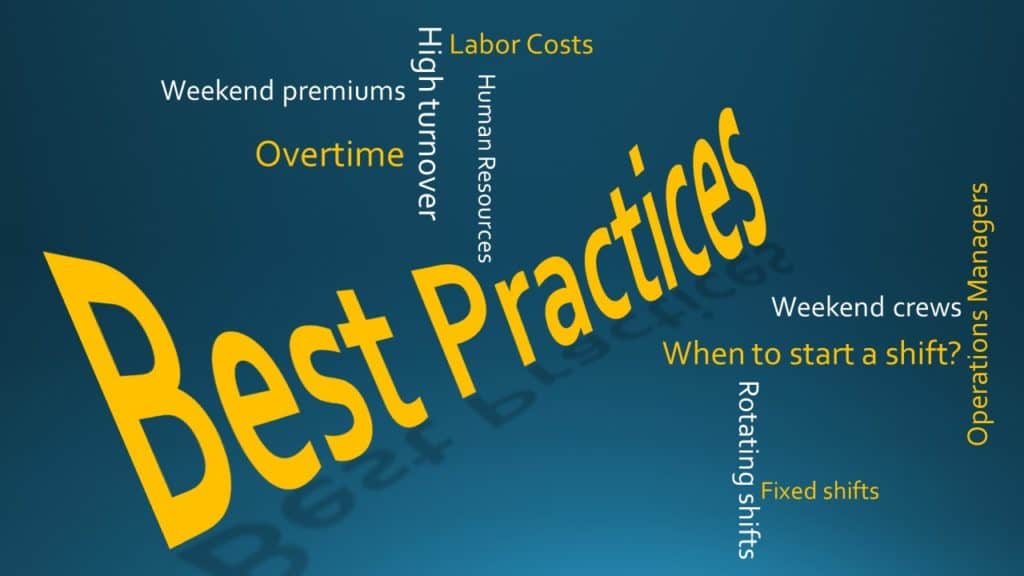Whenever we meet with a leadership team at a facility, the question always comes up, “What are other sites doing that works?” The second most asked question is, “What are other sites doing that doesn’t work?”

Operations managers want to hear the answers with regards to other operations while Human Resource managers want the answers with regards to employee issues. In short, they are looking for Best Practices. To address this area of interest, we are creating a 10-part series on Best Practices in Shiftwork Operations. This is the first installment.
- Avoid rotating shifts. If you want to chase away potential employees, tell them you have rotating shifts. More than 80% of all shift workers prefer fixed shifts. More than 60% of all shift workers want fixed shifts even if they know that they won’t be assigned to their favorite shift.
- Don’t start earlier than 6:00 am. Our research has shown that starting an hour earlier than 6:00 will result in 20 minutes less sleep per night. In other words, if shift workers have to get up earlier, they go to be earlier, but by a smaller amount and thus, shorten their sleep period.
- Pay 10% to 15% shift differential for non-day shifts. A shift differential is an incentive to get people to work a shift they would normally avoid. The smaller the differential, the fewer people you will get that voluntarily work a non-preferred shift. The shift differential paid by a neighboring facility is unimportant. You are not competing with them for labor. You are competing with your very own Day shift for Nightshift labor.
- Don’t pay weekend premiums. Linking premium wages to a day of the week will lock you into paying premium wages for those days – forever. Instead, link premium wages to consecutive days of work or total hours worked. You have control over those. You can lower overtime by hiring and thus, reduce premium wages. No matter how many people you hire, if you now pay a premium wage for Sunday, for example, you will continue to pay premium wages for Sunday.
- Don’t use a weekend crew. A weekend crew with fall under one of the following 2 groups, neither of which is sustainable: (1) Pay for weekend people is proportional to hours worked. Since they work fewer hours, they get less pay. This will result in a high turnover within weekend crews. Low skill levels, high absenteeism, and low company loyalty are typical characteristics. (2) Pay full wages and benefits to people only working partial weekly hours (typically 24 weekend hours). This will get your skilled people to the weekend but it will increase overall labor costs by as much as 25% since it will now take 5 crews instead of 4 crews to staff a 24/7 operation.
Call or text us today at (415) 763-5005 to discuss your operations and how we can help you transform your work environment. Or, complete our contact form and we will call you.
